2009 Animal Law Conference Speaker Biographies
2009 SPEAKER BIOGRAPHIES
Frank Ascione
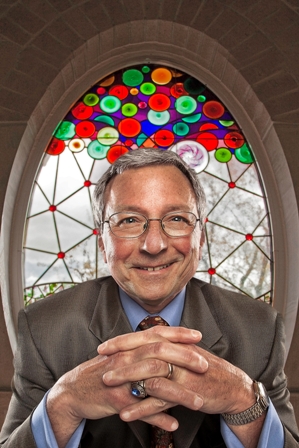
Dr. Ascione is Professor and American Humane Endowed Chair at the University of Denver (DU) Graduate School of Social Work. He is also Executive Director of the School’s Institute for Human-Animal Connection. Dr. Ascione received his bachelor’s degree in psychology from Georgetown University in 1969 and his doctoral degree in developmental psychology from the University of North Carolina at Chapel Hill in 1973. Dr. Ascione has published numerous articles on the development of antisocial and prosocial behavior in children, co-edited two books Cruelty to Animals and Interpersonal Violence: Readings in Research and Application (1998), Child Abuse, Domestic Violence, and Animal Abuse: Linking the Circles of Compassion for Prevention and Intervention (1998), both published by Purdue University Press, and authored Safe Havens for Pets: Guidelines for Programs Sheltering Pets for Women who are Battered. In the fall of 2001, the U.S. Office of Juvenile Justice and Delinquency Prevention published Ascione’s review of animal abuse and youth violence as a Research Bulletin. Children and Animals: Exploring the Roots of Kindness and Cruelty is Dr. Ascione’s latest book and was published in 2005 by Purdue University Press (the book has been translated into Japanese and Italian editions). The International Handbook of Animal Abuse and Cruelty: Theory, Research, and Application, edited by Dr. Ascione was published in May 2008. Development of this handbook was sponsored by the Scott Charitable Trust. Dr. Ascione was selected to receive the 2001 Distinguished Scholar Award from the International Association of Human-Animal Interaction Organizations and the International Society for Anthrozoology and, in 2002, was selected as USU’s College of Education Scholar/Researcher of the Year. He serves on the editorial boards of Anthrozoös, and Aggression and Violent Behavior and is an adjunct faculty member with the American Humane Association.
Dr. Ascione has conducted research related to humane education and children’s attitudes toward animals. More recently, he has focused his attention on child and adolescent animal abuse. This research examines the common roots of violence toward people and animals and is directed at identifying an early indicator of at-risk status in children. An invited speaker at local, national, and international conferences (including conferences in Tel Aviv, Geneva, Dublin, Prague, Florence, Rome, Brussels, Gothenburg, Cambridge, Oxford, Toronto, Vancouver (BC), London (Ontario), Rio de Janeiro, Kobe, Tokyo, Osaka, Sendai, Kumamoto, Kanazawa, Gifu, Miyazaki, Hiroshima, Kagawa, ,Amsterdam, the Hague, Utrecht, Haarlem, Sydney, Melbourne, Brisbane, Darwin, Mackay, Adelaide, Auckland, Glasgow, Regensburg, and Santorini (Greece)], Dr. Ascione has collaborated with human services, social work, and child development staff working with abused children, with youth corrections personnel, and with state shelters for women who are battered. His work has been supported by the Humane Society of the United States, the Massachusetts Society for the Prevention of Cruelty to Animals, the American Society for Prevention of Cruelty to Animals, the American Humane Association, the Scott Charitable Trust, and the Geraldine R. Dodge Foundation. Dr. Ascione has provided information or testimony for the state legislatures of Utah, Ohio, Colorado, Tennessee, and Washington, regarding cruelty to animals legislation. He has appeared on CNN’s “Live from the Headlines”, the Oprah Winfrey Show, had his research cited in the NY Times, USA Today, and Oprah Winfrey’s magazine, O (June 2008), and has been a guest on numerous local, national, and international TV and radio programs.
A member of the American Psychological Association and the Society for Research in Child Development, Dr. Ascione served on the Scientific Advisory Council of the Humane Society of the United States and serves on the Child and Animal Abuse Prevention Advisory Council of the Latham Foundation. He is past president of the Southwestern Society for Research in Human Development and is a member of the cadre of experts for The American Psychological Association’s Presidential Task Force on Violence and the Family.
Born and raised in New York City, Frank and his wife Deborah have three adult children, Matthew, Catherine (Santangelo), and David and two grandsons, Calvin and Luca, and reside in Denver, Colorado and Logan, Utah.
Dave Becker
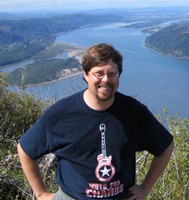
Dave Becker has been a staff attorney with the Oregon Natural Desert Association (ONDA) since January 2008, focusing on endangered species and wilderness protection, livestock grazing, and public lands energy development issues. He earned an LLM summa cum laude from the Northwestern School of Law of Lewis & Clark College in 2006, becoming the first LLM student inducted into the Cornelius Honor Society and sharing the Bernard O’Rourke Award for his article on the upcoming removal of Condit Dam and the restoration of the White Salmon River. During his year at Lewis & Clark, Dave worked with ONDA on an appeal of two district court cases involving grazing in the Malheur National Forest, successfully arguing ONDA’s case before the Ninth Circuit Court of Appeals. He resumes work on behalf of Oregon’s high desert after a year in Utah as staff attorney for Western Resource Advocates.
Dave grew up exploring the forests and gorges of Western New York and received his JD summa cum laude from Cornell Law School in 1999. While at Cornell he served on the Board of Directors of the Finger Lakes Land Trust and volunteered with a variety of local nonprofit groups. Dave has clerked for federal judges on the Second Circuit Court of Appeals and in the District of Oregon, and, before moving west, he practiced environmental law for five years in the private sector with Sidley & Austin and Latham & Watkins. He has published articles on the Roadless Rule and other administrative law topics, tribal reserved water rights, and the pedagogic history of natural resources law. Dave also holds an M.BA from the Kellogg School of Management at Northwestern University, an MA in international relations from the Australian National University, and an AB in international affairs from the Woodrow Wilson School at Princeton University.
Scott Beckstead
Scott Beckstead was born and raised in southern Idaho on a working cattle ranch and considers himself a lifelong horseman and animal lover. Mr. Beckstead went to college and law school in Utah, graduating from the University of Utah School of Law in 1991. He worked for a small firm on the central Oregon coast from 1991 to 1994, established a solo practice in 1994, and operated the only law office in Waldport, Oregon for fifteen years after that. Mr. Beckstead also served as Mayor of Waldport from 2002 to 2005. Scott has developed a special expertise in animal law and has taught the subject at the University of Oregon School of Law. He also co-authored the first textbook on the subject.
In 2008, Mr. Beckstead went to work for the Humane Society of the United States (HSUS) as their Oregon director. His first job at HSUS was to help establish the Duchess Sanctuary, a large horse sanctuary in Douglas County that is currently home to nearly 200 abused, neglected and abandoned horses. He also worked during the past legislative session to help get four important animal welfare bills passed.
Maneesha Deckha

Professor Deckha practiced with the Ministry of the Attorney General until 2001 and is currently a non-practicing member of the Law Society of Upper Canada. She joined the University of Victoria Faculty of Law in Victoria, Canada, as an Assistant Professor in 2002 after completing her graduate thesis on gender and cultural equality at Columbia Law School. Her research interests include feminist legal theories, law and culture, bioethics, and the boundaries between property and personhood, especially as they relate to non-human animals.
Her work has been published in the Canadian Journal of Women and the Law, the Osgoode Hall Law Journal, the Hastings Women’s Law Journal, the UCLA Women’s Law Journal, the Harvard Journal of Gender and Law and the Journal of Animal Law and Ethics. She teaches Bioethics, Personhood and the Law, Feminist Legal Theories, Property, Administrative Law and Legal Process. In 2006, her seminar on Animals, Culture and the Law received the U.S. Humane Society’s Animal and Society New Course Award. She is a member of several academic associations and serves as part of the National Steering Committee for the National Association of Women and the Law.
In 2008, Deckha was promoted to Associate Professor at the University of Victoria Faculty of Law and was also selected as a Canada-U.S. Fulbright Scholar to take up the Fulbright Visiting Chair in Law and Society at New York University for the Fall 2008 semester.
Daniel Dombrowski

Daniel Dombrowski is the author of sixteen scholarly books, several of which deal with the topic of animal rights. The Philosophy of Vegetarianism (Amherst: University of Massachusetts Press, 1984) could more appropriately be titled “Ancient Philosophical Vegetarianism” in that it deals with ancient Greek philosophy and the status of nonhuman animals. Hartshorne and the Metaphysics of Animal Rights (Albany: State University of New York Press, 1988) argues for animal rights in the context of process or neoclassical philosophy of religion. Babies and Beasts: The Argument from Marginal Cases (Chicago: University of Illinois Press, 1997) deals with the issue of moral patiency status as it relates to both nonhuman animals and nonrational human beings. About one-third of another book deals with animal rights: Not Even a Sparrow Falls: The Philosophy of Stephen R.L. Clark (East Lansing: Michigan State University Press, 2000). The stance in philosophy of religion that underlies much of his work in animal rights is detailed in Rethinking the Ontological Argument: A Neoclassical Theistic Response (New York: Cambridge University Press, 2006). Recent articles on the topic of animal rights include: “Is the Argument from Marginal Cases Obtuse?,” Journal of Applied Philosophy 23 (2006): 223-232; and “Whitehead and Nonhuman Animal Rights,” in Michel Weber, ed., Handbook of Whiteheadian Process Thought (Frankfurt: Ontos Verlag, 2008). His latest book is Contemporary Athletics and Ancient Greek Ideals (Chicago: University of Chicago Press, 2009).
Debra Durham
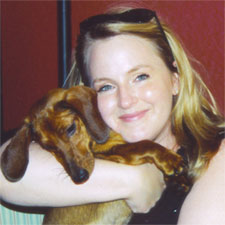
Debra Durham, PhD, is a senior research scientist with the Physicians Committee for Responsible Medicine (PCRM), a nationwide organization of physicians and laypersons that promotes preventive medicine, conducts clinical research, and encourages higher standards for ethics and effectiveness in research.
As senior research scientist, much of the research that Dr. Durham, a primatologist and ethologist, is currently conducting involves understanding how trauma has affected chimpanzees who have survived captivity in laboratories.
Dr. Durham’s work has direct implications for PCRM’s mission to replace the use of animals in medical research. In addition to her study of chimpanzee trauma, Dr. Durham also uses her expertise and passion for primates to engage the scientific community, policymakers, and the general public on animal welfare and ethics issues.
Before joining PCRM, Dr. Durham worked with People for the Ethical Treatment of Animals (PETA) as a primate specialist and in laboratories at the University of California, Davis, and at the University of Washington in Seattle.
During her laboratory work, Dr. Durham was so disturbed by the suffering she witnessed—particularly the trauma experienced by infants who are separated from their mothers shortly after birth—that she decided to study the behavior and biology of primates in their natural habitats instead.
Dr. Durham received her doctorate in animal behavior from the University of California, Davis, where she also earned a master’s in animal behavior. Dr. Durham received a bachelor’s in biocultural anthropology from the University of Washington.
Dr. Durham is a member of the American Public Health Association, the Animals and Society Institute, and the International Primatological Society. She is a cofounder and vice president of the International Association for Animal Trauma and Recovery and associate director at the Kerulos Center for Animal Psychology.
Se-ah-dom Edmo
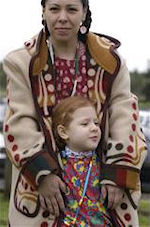
Se-ah-dom was born and raised in the Portland-Metro area and has strong ties with local and regional Native communities. She has worked extensively with AmeriCorps, OMSI and, most recently, OHSU’s School of Medicine where she coordinated the Diversity Achievement Programs assisting students from groups underrepresented in medicine to pursue medical careers. She was active as a descendent of the Celilo community in preparations for the commemoration of 50 years since the inundation of Celilo Falls (March 10, 2007). The IWOK program at Lewis & Clark seeks to empower Tribal communities by providing educational experiences through a multicontextual process rooted in Indigenous Worldviews and is funded by the Ford Foundation, Spirit Mountain Community Fund, the State of Oregon, Evergreen State College and private donations, www.lclark.edu/~iwok.
Alexis Fox
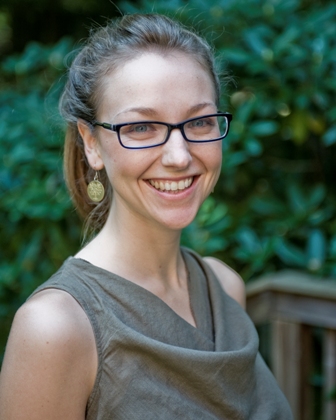
Pamela Frasch

Dean Frasch is the Assistant Dean of the Animal Law Program at Lewis & Clark Law School and the Executive Director of the Center for Animal Law Studies (CALS).
Previously, Dean Frasch was General Counsel for the Animal Legal Defense Fund (ALDF), a national nonprofit animal protection law organization that seeks to protect the lives and advance the interests of animals through the legal system. In 1996, Dean Frasch created the ALDF Criminal Justice Program, which has assisted law enforcement and animal advocates in investigating and prosecuting thousands of animal abuse and neglect cases nationwide.
In addition to her duties with CALS, Dean Frasch is co-author of the premier American legal casebook in the field, Animal Law, Cases and Materials, now in its third edition (Carolina Academic Press, 2006) and used in most animal law courses being taught in the United States. She is also co-author, with Professor Kathy Hessler, of the forthcoming Animal Law in a Nutshell (Thomson West, 2010). Dean Frasch has taught survey and advanced courses in animal law at Lewis & Clark Law School since 1998.
Dean Frasch is a frequent speaker and guest lecturer on issues of animal law. She is also the principal author of Oregon’s first felony anti-cruelty law. She has authored or co-authored a number of articles and book chapters in the field, and has been recognized by the Humane Society of the United States and the Oregon Humane Society for her contributions.
Prior to focusing her practice on animal law, Dean Frasch specialized in labor and employment law at the law firms of Littler Mendelson and Hanson Bridgett in San Francisco and employee benefits law at Stoel Rives in Portland, Oregon. She is a member of the California and Oregon State Bars.
Tio Hardiman
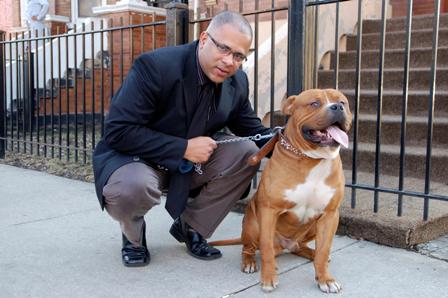
Tio Hardiman represents The Humane Society of the United States by making various appearances around the United States to address the problem of illegal dog fighting. One of America’s foremost experts on dog fighting, Hardiman has personally intervened in dog fights and rescued pit bulls in and around the city of Chicago. He has been interviewed frequently on the subject by the New York Times, Newsday, Baltimore Sun, Chicago Tribune, the Chicago Sun-Times, as well as network television stations throughout the United States.
Growing up in Chicago’s Henry Horner projects and the Avalon Park community, he attended Chicago’s Hisch High School, and went on to earn a degree in liberal arts and a master’s degree in inner city studies from Northeastern University.
In addition to his work with The Humane Society of the United States, Tio worked with The Chicago Alliance for Neighborhood Safety, where he has organized more than 150 block clubs and facilitated problem solving sessions for crime ridden communities and served as lead trainer. He also has worked with Bethel New Life, Chicago Mayor Richard Daley’s CAPS Program, Chicago Police Officials, community residents, elected officials, and clergy members to help reduce crime in Chicago.
In 1999, Tio joined The Chicago Project for Violence Prevention to work with Dr. Gary Slutkin a world-renowned epidemiologist working to reduce the homicide rate in Chicago. He continues to display a wealth of knowledge regarding his work assignments. The neighborhoods in which Tio works in have experienced 40-60 percent reductions in shootings since the implementation of CeaseFire. Tio predicted in the Chicago Tribune in 2004 that there would be 150 less homicides. In 2004, the number declined by 151.
In 2006, he joined forces with The Humane Society of the United States to help combat dog fighting and change the mindset of people who fight dogs in Chicago.
Mark Hawthorne
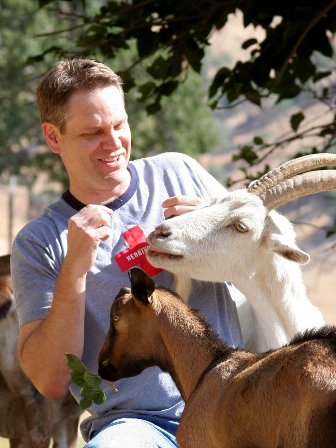
A longtime animal advocate and an award-winning writer, Mark Hawthorne is the author of Striking at the Roots: A Practical Guide to Animal Activism (strikingattheroots.com), which empowers activists to make the most of their skills and time on behalf of animals. Mark has engaged in nearly every model of activism, from leafleting and tabling to protesting and animal rescue. He also works and volunteers with several nonprofit organizations, including the Animal Legal Defense Fund, for which he writes The Animals’ Advocate newsletter; Animal Place, a vegan education center and sanctuary for farmed animals in northern California; and SaveABunny, which works with animal shelters in the San Francisco Bay Area to find permanent homes for rabbits.
Mark is a regular contributor to VegNews magazine, and his articles, book reviews, essays and opinion pieces have also appeared in Satya, Herbivore, Vegan Voice, Hinduism Today and many daily newspapers across the United States. Much of his writing can be viewed online at firstprecept.com.
Scott Heiser
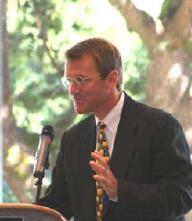
Scott has been a prosecutor for seventeen years, serving the last eight years as the elected district attorney in Benton County, Oregon. While Scott has prosecuted all types of criminal conduct including capital murder, he has always found animal cruelty cases among the most compelling cases he has handled. His passion for holding animal abusers accountable for their crimes lead Scott to join the Animal Legal Defense Fund (ALDF), serving as the Senior Staff Attorney in ALDF’s Criminal Justice Program. Scott received his JD, with honors, from Northwestern School of Law of Lewis & Clark College and his undergraduate degree in Economics from Oregon State University. In 2006, Scott served as the President of the Oregon District Attorneys Association and as member of the Governor’s Drug and Violent Crime Advisory Committee. Scott has been a regular instructor at trainings hosted by the Oregon Department of Justice and he has served on the Board of Directors of his local humane society animal shelter, helping to fund the construction of a new shelter. In 2007, Scott had the honor of lecturing at Harvard Law School as part of ALDF’s Future of Animal Law Conference; Scott guest teaches animal law at Boalt Hall and Lewis & Clark Law School.
Kathy Hessler
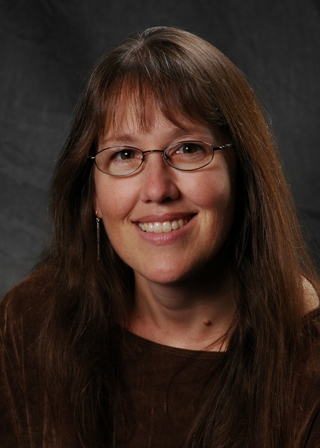
Kathy Hessler received her LLM from Georgetown University Law Center and graduated with a JD from the Marshall-Wythe School of Law at the College of William and Mary in 1987. She also holds a BA from George Washington University, which she earned in 1985. Professor Hessler has taught in civil, family, mediation, housing, consumer, social security, and community development clinics. She has also taught animal law, mediation, and focused problem solving.
Professor Hessler came to the Center for Animal Law Studies from Case Western Reserve University School of Law (Case), where she both taught and served as Associate Director of the Center for Interdisciplinary Study of Conflict and Dispute Resolution. She was a Founding Director of the Summer Legal Academy, a program of the Center for Social Justice designed to support the interest of minority high school students in the law. She also taught in the Milton A. Kramer Law Clinic Center.
Prior to teaching at Case, Professor Hessler taught in clinical programs at Cornell Law School, the University of Dayton Law School, and the Capital University School of Law. She has been an advisor to the journal Animal Law since 1998. She is the immediate past Co-Chair of the AALS Section on Clinical Legal Education, Chair of the AALS Animal Law Section, and Chair-Elect of the Balance in Legal Education Section and on the board for the pending.
Professor Hessler has served as a consultant to the Ohio Legal Assistance Foundation, and is active in movements relating to clinical legal education, appropriate dispute resolution, peace and nonviolence, and animal rights. Professor Hessler also taught as a fellow at the Center for Applied Legal Studies at the Georgetown University Law Center, and taught classes on nonviolence at Georgetown and at the University of Maryland. Prior to beginning her academic career, she was a staff attorney at Legal Services of Northern Virginia.
Professor Hessler’s scholarly writing has focused on animal law, the suppression of free speech, clinical legal education, and mediation. Her speaking engagements have focused on clinical legal education, animal law, and the legal implications of protest. In addition, she has experience as a mediator and has taught a mediation practicum, a mediation clinic, and an alternative dispute resolution course. Professor Hessler serves on the board of the Center for Teaching Peace and is a founding board member of the Cleveland Summer Legal Academy.
Charles Jantzen
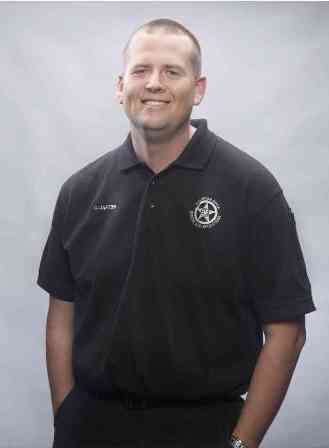
Houston SPCA Chief Cruelty Investigator, Charles Jantzen, has worked in animal welfare for 6 years. He has attended the National Cruelty Investigators School, National Equine Cruelty Investigations School and FEMA’s Emergency Management Institute. Charles leads a team of 8 highly dedicated professional individuals who investigate more than 12,000 cases of animal neglect and cruelty in an area that encompasses over 2,500 square miles of Southeast Texas. Throughout his career, Charles has helped provide relief to animals following natural disasters including the San Diego wildfires, the San Antonio floods, the Houston floods, in New Orleans after Hurricane Katrina and in East Texas following Hurricane Rita. In his work at the Houston SPCA, Charles feels a great sense of satisfaction knowing that as soon as he becomes involved in a case, an animal’s life either improves or the animal is removed and taken for rehabilitation and re-homing.
Matthew Liebman
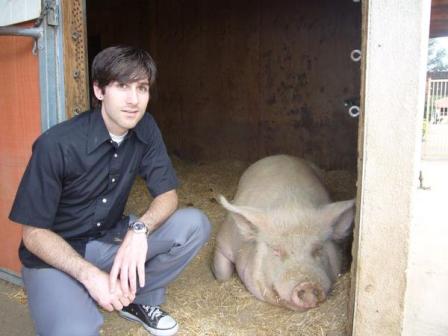
Matthew Liebman is a staff attorney at the Animal Legal Defense Fund, where he works in the civil litigation program. Prior to coming to ALDF, Matthew clerked for the Honorable Warren J. Ferguson of the United States Court of Appeals for the Ninth Circuit. Matthew graduated with distinction from Stanford Law School in 2006, where he co-founded a chapter of the Student Animal Legal Defense Fund and helped lead a campaign against campus vivisection. Matthew was actively involved in the National Lawyers Guild, the Critical Legal Theory Reading Group, and the Environmental Law Society. Matthew’s writing has appeared in the Journal of Animal Law, the Stanford Environmental Law Journal, the Animal Legal & Historical Web Center, and the Stanford Daily.
Russ Mead
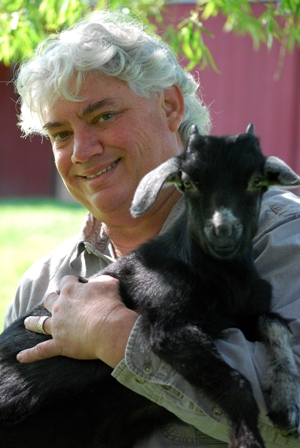
Russ Mead is General Counsel of Farm Sanctuary, the nation’s leading farm animal protection organization. Farm Sanctuary rescues animals from cruelty, exposes factory farming abuses and advocates for legal protections for farm animals. In addition, Farm Sanctuary shelter in Watkins Glen, NY and Orland, Calif. provide lifelong care for hundreds of rescued animals who have become ambassadors for farm animals everywhere by educating visitors about the realities of factory farming. Prior to joining Farm Sanctuary, Russ was General Counsel for Best Friends Animal Society where he lobbied for animal protection laws. He was on the ground overseeing thousands of volunteers after Hurricane Katrina hit, and has put into motion some of the largest animal rescues in the country. His work included rescues from animal hoarders and the associated cruelty case work. Russ holds a BS in Accounting from Arizona State University, an MBA from Lindenwood College, a JD from St. Louis University School of Law, and earned a CPA from Arizona. He practiced business law out of Seattle for many years and taught graduate level managerial finance, business ethics and business law at Fontbonne University in the executive MBA program.
Katherine Meyer

Katherine Meyer is a partner with Meyer Glitzenstein & Crystal in Washington, D.C., named “the most effective public-interest law firm in Washington, D.C.” by The Washingtonian Magazine. She specializes in administrative, environmental, wildlife, animal, public health, and open government law, and represents many national and grass roots environmental, animal welfare, and public health organizations. Ms. Meyer has extensive federal and state court litigation experience. She litigated the Article III standing issues in Animal Legal Defense Fund v. Glickman, 154 F.3d 426 (D.C. Cir. 2001) (en banc), and The American Society for Prevention of Cruelty to Animals v. Ringling Bros. and Barnum & Bailey Circus, 317 F.3d 334 (D.C. Cir. 2003), and has litigated many cases under the Endangered Species Act, National Environmental Policy Act, and other environmental and animal protection laws. She was the lead attorney in the Pennsylvania case that resulted in shutting down the infamous Hegins, Pa. pigeon shoot, Hulsizer v. Labor Day Comm., 734 A.2d 848 (Pa. 1999), and on behalf of a broad coalition of groups last year obtained a unanimous ruling from the New Jersey Supreme Court invalidating an exemption under the state animal cruelty code for generally accepted agricultural practices, New Jersey Soc. for Prevention of Cruelty to Animals v. N.J. Dep’t of Agriculture, 955 A.2d 886 (N.J. 2008).
Ms. Meyer is currently representing a coalition of public health organizations, including The Campaign for Tobacco Free Kids, The American Heart Association, The American Lung Association, and The National Cancer Society as intervening parties in the U.S. Department of Justice’s RICO case against the tobacco industry, United States v. Philip Morris Inc., 566 F.3d 1095 (D.C. Cir. 2009); on behalf of several animal welfare organizations she recently finished a six-week trial under the Endangered Species Act against the Ringling Bros. Circus for its mistreatment of endangered Asian elephants, ASPCA v. FEI, Civ. No. 03-2006 (D.D.C.); and she recently obtained a favorable ruling on behalf of animal welfare and environmental organizations declaring unlawful a Fish and Wildlife Service regulation that allowed the “canned hunting” of three species of endangered antelopes, Cary v. Gould, 2009 WL 1743501 (D.D.C. 2009).
Ms. Meyer spent many years litigating cases for Ralph Nader’s network of public interest groups, including ten years with the Public Citizen Litigation Group, before starting her own practice in 1993 with Eric Glitzenstein. She has taught Civil Litigation and Public Interest Advocacy at The Georgetown University Law Center, and was appointed by the D.C. Court of Appeals to serve on its Advisory Committee on Procedures from 1995 - 2001. She co-founded and serves on the Board of Directors of The Wildlife Advocacy Project, served for nine years on the Board of Directors of Defenders of Wildlife, chairing its Litigation Committee, and currently serves on the Boards of The Center for Biological Diversity and The Center for Auto Safety.
Robert J. Miller
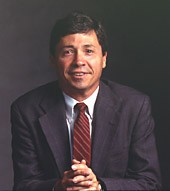
Robert J. Miller is a professor at Lewis & Clark Law School in Portland, Oregon. He graduated from Lewis & Clark in 1991 and then clerked for the U.S. Court of Appeals for the Ninth Circuit. He has taught and practiced Indian law since 1993. He has also been a part-time tribal judge for Northwest tribes since 1995 and is now the Chief Justice of the Court of Appeals for the Grand Ronde Tribe. Bob has published numerous articles, books, editorials, and book chapters on Indian law issues and has spoken at federal, state, and private conferences in more than thirty states and in England, Canada, and Australia. In 2003, he was appointed by his tribal council to the Circle of Tribal Advisors, which was part of the National Council of the Lewis & Clark Bicentennial. His first book, Native America, Discovered and Conquered: Thomas Jefferson, Lewis & Clark, and Manifest Destiny, was published in hardback in 2006 and in paperback in 2008. Bob has finished the first draft of a book about American Indian economic development and is writing another book with Indigenous scholars from Australia, New Zealand, and Canada. He is a citizen of the Eastern Shawnee Tribe of Oklahoma and was elected to the board of the Oregon Historical Society in 2009.
Heidi Moawad
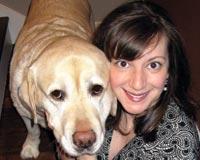
Heidi Moawad is an Oregon native. She attended Whittier College for her undergraduate studies, double-majoring in Political Science and Theatre. A few years after returning home, she enrolled in the University of Oregon School of Law graduating in 1999. Moawad began working immediately at the Multnomah County District Attorney’s Office. In 2005, she left briefly to work as Counsel to the Judiciary Committee in the Oregon State Legislature. While at the District Attorney’s Office, Moawad has been assigned to several units including the misdemeanor intake unit, the misdemeanor trial unit, the neighborhood program, the felony property unit, drug unit, and she is now in one of the office’s major felony units. Her current assignment in the major felony unit includes handling felony animal abuse cases. Moawad enjoys working with members from the Oregon Humane Society and Multnomah County Animal Control prosecuting these cases. Having one individual assigned to handle the cases provides a streamlined manner of investigation and prosecution.
Heidi’s aggressive prosecution of profoundly cruel animal abuse in the White Socks kitten case helped improve the flawed sentencing system that capped the state’s ability to put the offenders away for a meaningful period of time. The two men were sentenced last April to jail time, mental health evaluations, and prohibitions on contact with animals after torturing their Portland roommate’s 7-week old kitten, White Socks, finally striking her with a hatchet until she’d been nearly decapitated and throwing her body over a backyard fence.
Ed Newcomer
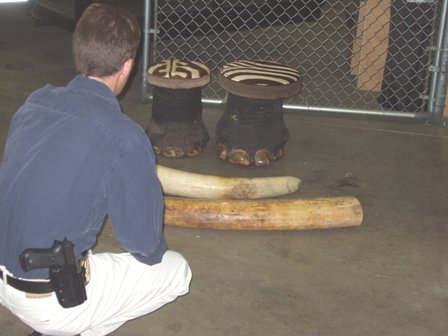
Ed Newcomer is a special agent with the United States Fish and Wildlife Service and is currently assigned to the Los Angeles field office. He currently serves as the Deputy Resident Agent in Charge for the Service’s criminal investigations in Southern California. As a special agent, Ed is responsible for investigating criminal violations of more than 27 federal wildlife laws including the Endangered Species Act, the Migratory Bird Treaty Act, and the Lacey Act. Service special agents are charged with disrupting international and interstate criminal enterprises engaged in commercial trafficking of protected wildlife and other criminal activities that have major impacts on federally protected species. Ed has been recognized for distinguished service by the US Attorney’s Office for the Central District of California and several of his investigations have been featured in national publications, books, and broadcasts. Prior to joining the Service as a special agent, Ed practiced law for over ten years in the states of Washington and Colorado. During that time, he served as an assistant attorney general for both states and as a hearing officer for the state of Colorado. Ed maintains an active license to practice law in the state of Colorado.
Nicole Pallotta
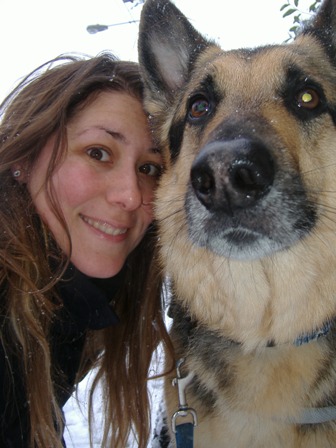
Nicole Pallotta, PhD, is the student liaison for the Animal Legal Defense Fund, where she works in the animal law program. In this capacity, she works with law students who are interested in protecting the lives and advancing the interests of animals through the legal system. Nicole also works with over 140 Student Animal Legal Defense Fund (SALDF) chapters, which are ALDF-affiliated law student groups that work to promote animal law within their communities. Nicole helps law students form and maintain chapters, and assists them with projects like getting animal law courses added to the curriculum at their schools. She also coordinates ALDF’s animal law internship, scholarship, and project grant programs. Prior to coming to ALDF, Nicole received her doctorate in sociology from the University of Georgia, where she taught undergraduate courses in Animals and Society and researched the cultural context of participation in the animal protection movement. In addition to her academic work, Nicole has been involved with numerous animal protection and rescue groups over the years. She currently lives in Portland, Ore., with her canine companion, Alec, about whom she blogs at www.alec-story.blogspot.com.
Melissa Powers
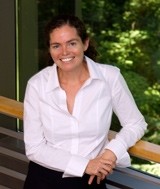
Melissa Powers is an Assistant Professor of Law at Lewis & Clark Law School. She teaches energy law, climate change law, ocean & coastal law, other environmental courses, and administrative law. She also helps coach the environmental law and animal law moot court teams. Her research interests include statutory interpretation and domestic policies aimed at mitigating climate change.
From 2003-2008, Melissa was a Clinical Professor at the Pacific Environmental Advocacy Center (PEAC), the environmental law clinic at Lewis & Clark. Her clinical work focused primarily on pollution control litigation, with a particular emphasis on the Clean Water Act. During her tenure at PEAC, Melissa successfully litigated several cases in federal and state courts. Before joining PEAC, Melissa practiced law and supervised clinical students at the Western Environmental Law Center in Eugene, Oregon. She spent several years prior to law school leading teenagers in youth conservation corps and other outdoor programs.
Melissa spent the spring semester of 2007 as a Visiting Professor at the University of Maine School of Law, where she taught environmental law and coastal zone law. She was also a Visiting Professor at the University of Trento, Italy, in May 2008.
Robert Roop
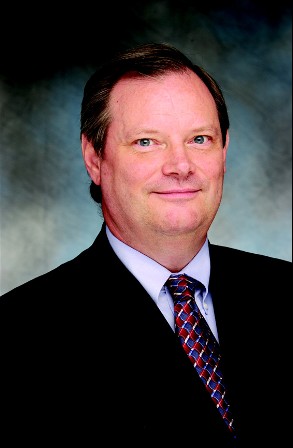
Robert G. Roop is president of Humane Society University, a private, nonprofit institution offering a variety of academic degree and noncredit professional development programs in advocacy, animal care, education, and public policy. Based in Washington, D.C., HSU is the first higher education institution in the country licensed to provide Bachelor of Science degrees and graduate certificates exclusively dedicated to human-animal studies. Dr. Roop also serves as the vice president of Human Resources and Education for The Humane Society of the United States (HSUS), the nation’s largest animal protection organization, with more than ten million constituents and a staff of 600.
In 2003 he was named one of the 100 most highly effective human resource leaders in the world by the Society for Human Resource Management (SHRM), an association of 170,000 human resource and academic professionals in more than 120 countries. This award was given by the SHRM Foundation, a nonprofit affiliate of SHRM that serves as a catalyst for leading-edge research and education to advance the human resources field and enhance the effectiveness of human resources professionals.
Dr. Roop began his career as a probation officer working with juvenile and adult felons in the Juvenile Domestic Relations Court in Roanoke, Virginia, and in the Circuit Court in Baltimore County, Maryland. Later he moved from criminal justice to the hospitality industry, joining the Marriott Corporation. He came to The HSUS in 1996.
From 2002 through 2009 The HSUS received the Workplace Excellence Seal of Approval presented by the Maryland Work-Life Alliance. The Maryland Work-Life Alliance is a statewide coalition of private, public, and nonprofit organizations committed to empowering employers nationwide to create and be recognized as excellent places to work. Dr. Roop has led the HSUS effort in creating a workplace where employees can achieve success in their professional and personal lives.
As president of Humane Society University, Dr. Roop has led its growth from a traditional onsite training resource to an award-winning provider of distance learning to animal care professionals throughout the world. Since its inception in 1999, HSU has reached more than 12,000 students — offering a range of credit and non-credit courses, professional certificate programs, and onsite workshops in animal care, shelter management, humane education, and advocacy throughout the United States. Dr. Roop has successfully formed educational partnerships with seven leading universities to expand the university’s outreach efforts to a global stage.
An active and compelling speaker, Dr. Roop has made over 125 presentations to nonprofit board members, physicians, clinical social workers, executive directors, managers, and staff on a variety of management and leadership topics. He has gained national recognition for his presentations on the emerging problem of compassion fatigue. In 2002 he became a certified compassion fatigue specialist and is in the forefront of compassion fatigue training in the animal care and control community. His book Compassion Fatigue in the Animal Care Community, coauthored with Charles Figley, PhD, was published in 2005.
Dr. Roop teaches graduate and undergraduate courses in management at Webster University and at the Catholic University of America. He holds a master’s degree in community counseling psychology, a PhD in human resource management, and is a certified senior human resource professional. In 2004 he became a certified association executive. In 2005, after serving on its supervisory committee for several years, Dr. Roop was elected to the board of directors for the Mid-Atlantic Federal Credit Union in Gaithersburg, Maryland.
Dr. Roop lives in suburban Maryland with his wife, Mary. They have three grown daughters.
Reverend Stephen Schneider
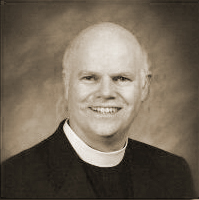
Since 1994 the Rev. Stephen V. Schneider has served as Rector of Grace Memorial Episcopal Church in Portland, Oregon. From 1989 to 1994 he was Canon Residentiary at the Episcopal Cathedral of St. John the Baptist in Portland. In these two congregations he introduced an annual blessing of animals on St. Francis Sunday (the Sunday nearest October 4th).
Stephen was educated as an undergraduate at Wheaton College in Illinois where he was a philosophy major. He received a Master of Divinity degree from Princeton Theological Seminary and a Certificate in Anglican Studies from The General Theological Seminary in New York City.
Over the years he has served on numerous community boards including the City Club of Portland, Oregon Episcopal School, Pioneer Courthouse Square and St. Andrew Legal Clinic. In 1998 he was President of the board of Ecumenical Ministries of Oregon.
Stephen has also served as Chair of the Committee for the Protection of Human Subjects for Kaiser Permanente, Northwest Region and the Advisory Board for the Providence Child Center (a center for medically fragile children).
In 2007 he was a speaker at the conference, Codes and Commands: Emerging Law and Religious Tradition in the Treatment of Animals, sponsored by the Oregon Law Institute of Lewis & Clark Law School.
Megan Senatori
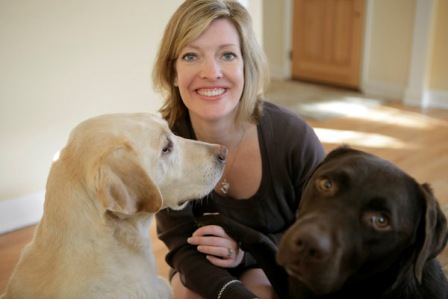
Megan A. Senatori is a partner at the law firm of DeWitt Ross & Stevens, S.C. in Madison, Wisconsin, where she concentrates her practice on complex civil litigation and appeals, with an emphasis on insurance coverage matters, commercial litigation, and public employment law.
Despite the demands of private practice, Ms. Senatori devotes a portion of her practice to cases that advance the protection of animals in the legal system. She has recently filed amicus curiae briefs in animal law cases in the Tenth Circuit Court of Appeals (on behalf of Animal Legal Defense Fund, arguing that the court should consider the important relationship between the plaintiffs and their companion dogs in deciding the Constitutionality of Denver’s pitbull ban) and the United States Supreme Court (on behalf of a group of animal law professors in the Stevens case, arguing that preventing animal cruelty is a compelling governmental interest).
She is an Adjunct Professor of Animal Law at the University of Wisconsin Law School and Marquette University Law School where she also serves as the faculty advisor to the Student Animal Legal Defense Fund at both law schools. In 2001, she co-founded the SAAV Program, Inc. (“Sheltering Animals of Abuse Victims)”, a 501(c)(3) all volunteer organization that provides confidential temporary foster care for the pets of domestic abuse victims receiving services from Domestic Abuse Intervention Services. (www.saavprogram.org). She currently serves as President.
Since 2006, the national publication Law & Politics has recognized Ms. Senatori as a Rising Star. In 2008, Wisconsin Law Journal honored her with its first Rising Star award, an annual award given to only one recipient in the State in recognition of outstanding contributions to the practice of law, including: leadership in advancing legal services to the poor, important contributions to Wisconsin’s legal community and important contributions to the community at large.
Valerie J. Stanley
Valerie J. Stanley is an Adjunct Professor of Animal Law at Georgetown University Law Center and the University of Maryland School of Law. Valerie previously served as the senior staff attorney at the Animal Legal Defense Fund where she was responsible for developing and litigating cases against federal and state agencies involving statutes enacted to protect animals. Currently, Valerie practices Animal Law with an emphasis on litigation and advocacy to protect wild horses and burros as integral parts of the public lands. From 2005 through 2009, she worked as an attorney in the Baltimore City Solicitor’s Office on complex federal civil litigation, including the City’s suit against CSX, Inc. for the 2001 Howard Street Tunnel train derailment, hazardous material spill and fire, the City’s response to the issue of hazardous material transport by train through urban centers and defense of a putative class action against the Baltimore Police Department for racial discrimination in discipline, Hopson v. Mayor and City Council. Hopson is a landmark case addressing discovery of electronically stored information.
Prior to joining the Animal Legal Defense Fund, Valerie was a founding partner of the law firm of Galvin, Stanley & Hazard, which specialized in animal protection law and where she practiced general civil and criminal litigation and served as an Assistant Public Defender for Montgomery County, Maryland, handling criminal defense of indigents charged with misdemeanors and felonies. As an associate for Reasoner, Davis & Fox, Valerie practiced in the areas of trusts and estates, employment discrimination, general civil and commercial law and litigation as counsel to individual and corporate clients. Valerie was law clerk to the Honorable Thomas F. Hogan of the U.S. District Court of D.C.
Valerie graduated from Goucher College and earned her law degree at the Catholic University, where she was a member of the law review. While in law school, she was a national winner of the American Trial Lawyer’s Association Environmental Law Essay Contest. She is a frequent lecturer on the Wild Free Roaming Horses and Burros Act, the federal Animal Welfare Act, and on the laws governing the use of animals in experimentation. She co-authored “Animals and Their Legal Rights,” Animal Welfare Institute, 1990, is currently working on a revised edition of that book, was a contributor to the Animal Law textbook and authored Comment, Establishing Liability for the Damages from Hazardous Waste: An Alternative for Love Canal Plaintiffs, 31 Cath. Univ. L. Rev. 273 (1982).
Joyce Tischler
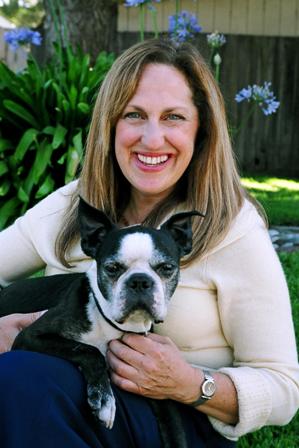
As one of the co-founders of the Animal Legal Defense Fund, almost thirty years ago, California attorney Joyce Tischler has helped shape the emerging field of animal law. Joyce handled some of Animal Legal Defense Fund’s earliest cases, including a 1981 lawsuit that halted the U.S. Navy’s plan to kill 5,000 feral burros and a 1988 challenge to the U.S. Patent Office’s rule allowing the patenting of genetically altered animals. She has tackled such diverse topics as challenges to hunting and trapping using the National Environmental Policy Act (NEPA) and the Endangered Species Act (ESA), enforcement of the federal Animal Welfare Act, standing to sue, animal custody battles, the right to kill animals pursuant to will provisions, landlord-tenant issues and damages and recovery for injury to or death of an animal. Joyce was the Animal Legal Defense Fund’s Executive Director for 25 years and now serves as the agency’s General Counsel, overseeing its civil Litigation Program.
Paul Todd
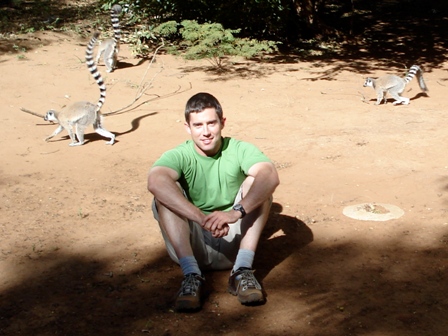
Paul Todd is a Program Manager with the International Fund for Animal Welfare (IFAW). From IFAW’s Washington, DC, Office, Paul oversees innovative advocacy campaigns to eliminate the illegal trade in wildlife via the Internet, protect polar bears from trophy hunting and commercial trade, reestablish the ban on the elephant ivory trade within the United States, and strengthen the Convention on the International Trade in Endangered Species (CITES). Paul recently co-led a successful effort to convince eBay, Inc. to stop selling elephant and other animal ivory on all of its websites and affiliates worldwide, a campaign that was featured on ABC News Planet Green and in the New York Times. Before coming to IFAW, Paul spent four years at Defenders of Wildlife, where he focused on National Forest conservation and domestic and international wildlife protection. In 2004, Paul took a leave of absence from Defenders to work as Deputy Political Director and Voter Protection Coordinator for Sen. John Kerry’s presidential campaign in Colorado.
Paul arrived in Washington, D.C., in 2001 and accepted a Congressional Steel Caucus Fellowship in the office of Caucus Chairman Rep. Pete Visclosky (D-IN). Following the Fellowship, he was hired on as Communications Director and Legislative Counsel for Rep. Joe Baca (D-CA).
Paul received a BA in Environmental Science and a BS in Journalism from the University of Kansas, as well as a JD from the University of Kansas School of Law. Paul was admitted to the State Bar of Colorado in 2000.
Bruce Wagman
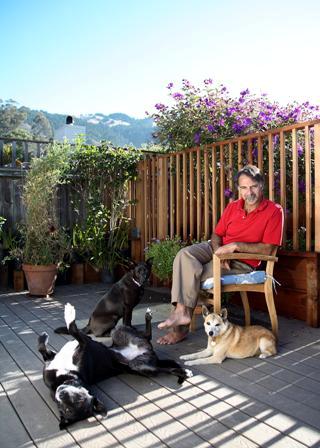
Bruce Wagman is a partner in the San Francisco office of Schiff Hardin, with an almost exclusive focus on a wide range of animal law cases, as well as education and consultation in the field. He also serves as the Chief Outside Litigation Counsel for the Animal Legal Defense Fund, a national legal animal protection organization for which he helps devise and run a national litigation program. He has been practicing animal law since 1992 and has represented clients in state and federal courts.
Bruce’s clients include numerous animal protection organizations as well as private individuals. His cases cover national issues affecting animals in entertainment, biomedical research, animal cruelty, agribusiness, and wildlife, as well as more “local” cases involving injuries to, and caused by, companion animals. He has worked on numerous large hoarding cases as well. He is a coeditor of Animal Law, the first casebook for animal law courses, which was first published in January 2000; the fourth edition will be published in Decembe
Event Coordinator:
Liberty Mulkani
lmulkani@lclark.edu